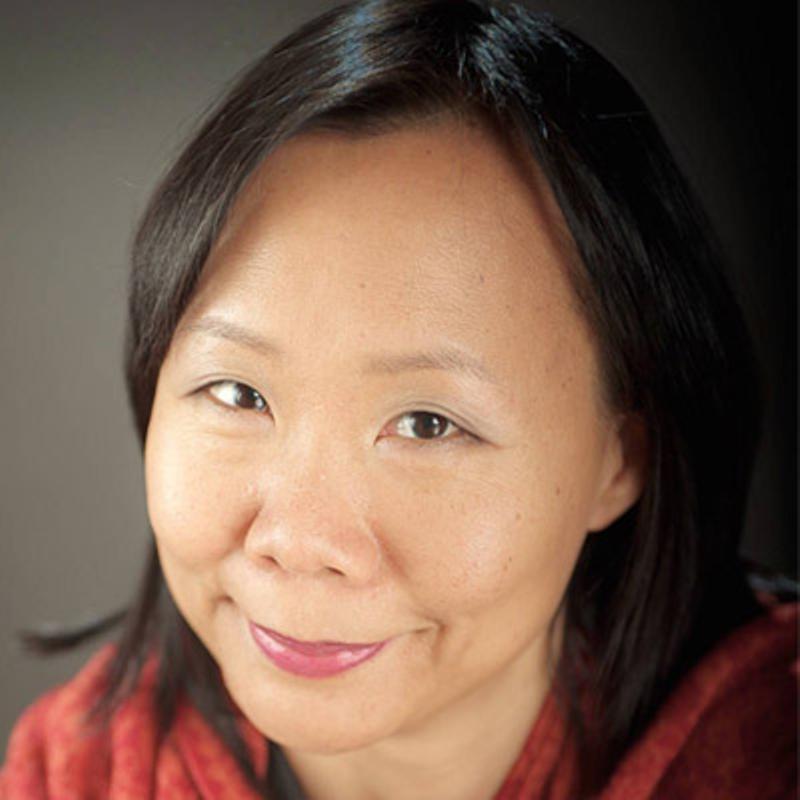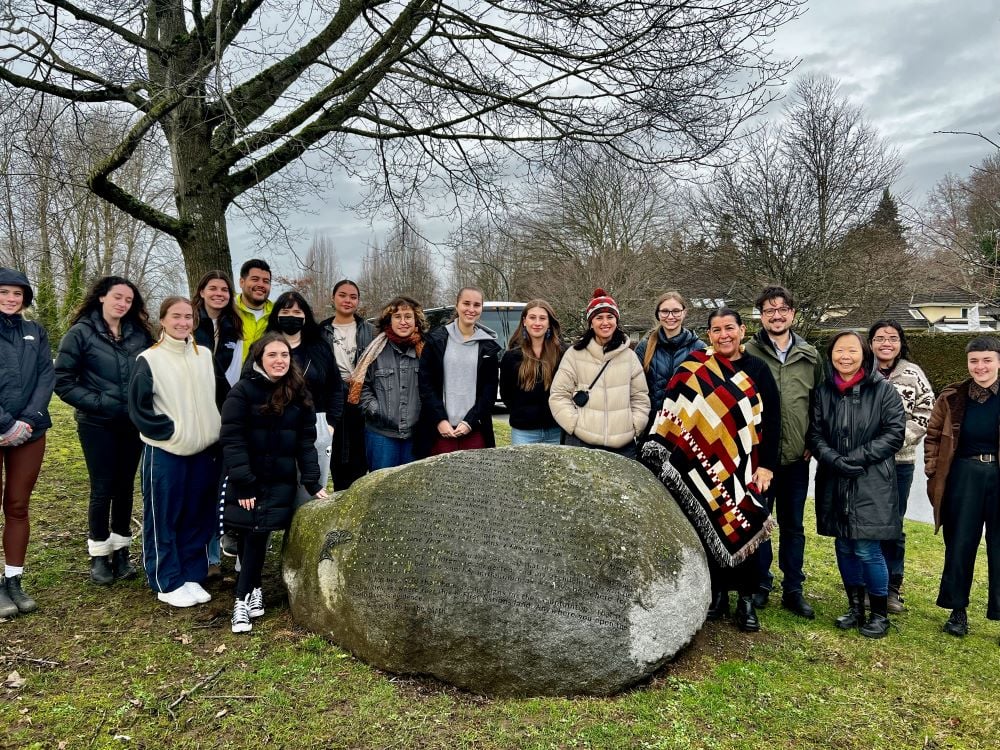As the City of Vancouver’s sixth poet laureate, I’ve had an amazing, intense journey co-ordinating the two-stage City Poems poetry project to foster public engagement with local history and culture through poetry. The project has come into fruition this spring, just in time for April, National Poetry Month.
Last year, I initiated the first stage of the project, a contest for youth, emerging and established poets to write poems about historical, cultural and ecological sites within Vancouver. This year, for the second stage of the contest, I’ve focused on encouraging collaboration between poets and aspiring filmmakers.
Student teams took on the challenge of making short poetry videos based on 15 poems about local sites such as English Bay, Commercial Drive, the Komagata Maru memorial in Coal Harbour, Hogan’s Alley, Chinatown, Hastings Park, Vanier Park, former Musqueam village sites and more.
Poetry across the city
Four classes at three universities were involved in creating poetry videos. They are Emily Carr University of Art & Design’s Foundation 160 (Core Media Studio) and Animation 2DN 211 (2D Animation), Simon Fraser University’s IAT 344 (Moving Images) and UBC’s First Nations & Indigenous Studies 454 (Indigenous New Media) courses. There was also one independent UBC student team led by one of the finalists from last year’s contest.
The poetry video stage of the City Poems contest was launched with a panel presentation at the Vancouver Public Library with me, contest judge Heather Haley and filmmaker Tom Konyves. He is the author of the Videopoetry manifesto and curator of last year’s videopoetry retrospective at the Surrey Art Gallery.
The launch featured examples of various approaches to videopoetry and poetry videos, with an opportunity for the instructors and students to meet some of the poets. I also visited each class to introduce the project, plus gave feedback on students’ rough cuts and attended screenings of their final cuts.
SFU professor Kate Hennessy gave her students free rein to select any poem from the eligible list, as did SFU instructor Jay Tseng during the trial run of the project. ECUAD professor Christine Stewart also let her first-year film students choose any poem they wished from the list.
Two instructors took a slightly different approach to the project. UBC professor David Gaertner’s First Nations and Indigenous Studies class focused on one piece of writing, “Know who you are, know where you come from” by acclaimed Musqueam weaver and artist Debra Sparrow.
The piece depicts how her grandfather would take her and her children on a car ride to visit former Musqueam village sites. Sparrow led the class on a bus tour along a similar route. The tour took students to Stanley Park, where Sparrow’s ancestors were evicted at gunpoint, and to the beach at Spanish Banks where Musqueam community members went by canoe to greet the Spanish and British ships. The tour also went to the mouth of the Fraser River in Southlands where Musqueam families fished and resided.
ECUAD professor Martin Rose selected three possible poems for his second-year animation students to choose to work on. The selected poems were “This was meant to be for Nora” (a poem by Junie Desil, about Hogan’s Alley), “Contrasts” (by Donna Seto, about gentrification in Chinatown) and “Entertainment” (by Jeremy Chu, about the former Marco Polo nightclub). The class decided to work on all of the poems, dividing into three teams that focused on various sections and elements of each poem.
The poetry videos that were submitted to the contest range from one to five minutes in duration and display a wonderful array of styles and imaginative approaches.
Thirty-three student videos
Several videos are akin to mini-documentaries, while others integrate animation, montage, text, and/or experimental techniques. It’s fascinating to see the vastly different interpretations of some of the poems. Four of the poems (“Postcard Home from English Bay,” “Know who you are and know where you come from,” “Contrasts” and “Entertainment”) have each been interpreted three different ways, and one poem (“The Stone Artist”) has seven different interpretations.
You can view all 33 poetry videos on the Vancouver Public Library’s YouTube Playlist for the City Poems Contest and vote for your favourite ones from each university.
Audience choice voting will continue until May 25 at 5 p.m. (Votes after that date will not be counted, but videos can still be viewed.)
You can also find the text and synopses of the poems, along with links to the specific videos based on the 15 poems here.
In the meantime, contest judge Heather Haley will be selecting three prize-winning poetry videos (first prize $1,000; second prize $500; third $300). These winners and the Audience Choice prizes will be announced at a ceremony on June 11 at the Museum of Vancouver that will be free and open to the public.
You’ll also have a chance to see several of the top poetry videos at a screening with Word Vancouver Festival on Sept. 16, at UBC Robson Square. A terrific opportunity to experience how poetry, visuals and sound design can work in synergy. ![]()
Read more: Media

















Tyee Commenting Guidelines
Comments that violate guidelines risk being deleted, and violations may result in a temporary or permanent user ban. Maintain the spirit of good conversation to stay in the discussion and be patient with moderators. Comments are reviewed regularly but not in real time.
Do:
Do not: